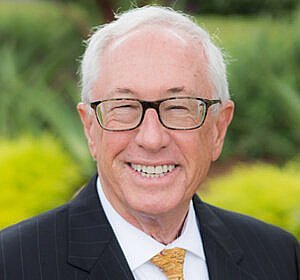Revisiting & Revising Your Nonprofit Bylaws in 2025

Bylaws serve as the governance framework for your nonprofit, guiding operations and decisionmaking. While they are not mandated under California corporate law, they are crucial for proper nonprofit function and IRS tax-exemption considerations.
However, many nonprofits neglect their bylaws, leading to governance challenges. As your organization evolves, revisiting and updating your bylaws ensures they align with legal requirements and current operational practices.
Why Updating Bylaws Matters
• Bylaws often become outdated, conflicting with current laws and practices.
• They provide guidance for governance issues like membership disputes, director conduct, and voting procedures.
• Ensuring compliance with California nonprofit law prevents operational and legal complications.
• Keeping them flexible and relevant enhances efficiency and effectiveness.
Common Pitfalls & How to Avoid Them
• Understand California’s Nonprofit Corporations Law – State law supersedes conflicting bylaws and provides default rules.
• Plan for contingencies – Ensure bylaws address director removal and replacement processes.
• Form a diverse Bylaws Committee – Including a broad organizational cross-section aids in fair and practical updates.
• Seek legal guidance early – Consulting an attorney before drafting avoids unnecessary revisions later.
• Keep bylaws flexible – Use provisions allowing board-designated officers, committees, and adjustable director numbers.
• Separate policies from bylaws – Operational details (e.g., employment policies, fundraising rules) should be covered in policies, not bylaws.
Key Elements of Effective Bylaws
• Organization Name & Purpose – Must match the Articles of Incorporation and align with tax-exempt requirements.
• Board of Directors – Defines roles, responsibilities, and restrictions, ensuring accountability and oversight.
- No proxy voting or email actions unless unanimous and meeting certain requirements.
- Clear quorum requirements to prevent governance deadlocks.
- Term limits and staggered terms to maintain leadership continuity.
• Membership Structure – Clarifies voting rights, eligibility, and whether the organization will have statutory members or honorary members.
- Pros: Engages stakeholders and strengthens support.
- Cons: Adds administrative burden and potential for conflicts.
• Meeting & Voting Procedures – Ensure compliance with California law while reflecting actual practices.
• Asset Dedication Clause – Required for tax-exemption and property tax benefits.
Making Bylaws Work for Your Nonprofit
Bylaws should be a living document—review them periodically and revise as needed to align with your nonprofit’s mission and operations. Ensure they are clear, practical, and legally sound to facilitate smooth governance in 2025 and beyond.
About the author: Roy Schneider, Esq. With over 40 years of experience, Attorney Roy Schneider is a trusted legal expert in business law, estate planning, employment law, and nonprofit law. As the founder of Schneiders & Associates, LLP, he leads a team of attorneys dedicated to serving businesses and entrepreneurs. In addition to his legal practice, Roy has a passion for education, having founded the California College of Paralegal Studies and serving as an adjunct professor at California Lutheran University.
More
- U.S. Latino economic output tops $3 trillion for the first time
September 13, 2023Latinos in the United States continue to drive the economy forward — as they’ve been doing since the 1500s.
- Center for Economic Research and Forecasting wins Latino Leadership Award
July 28, 2023 - Fellowship makes new voices heard on injustice
December 19, 2022The ASCENSO fellows went inside our local government to study issues confronting Ventura County Latinos.
- Cal Lutheran Upward Bound gets $3.6M
June 17, 2022The U.S. Department of Education awarded California Lutheran University more than $3.6 million to continue and expand its TRIO Traditional Upward Bound services for high school students in Oxnard, Hawthorne and Lawndale.
- Graduate, Professionals ceremony slated
April 28, 2022California Lutheran University will hold its 2022 Graduate and Professionals Commencement at 9 a.m. Saturday, May 14.
- Cal Lutheran gets its largest NSF grant
March 24, 2022California Lutheran University received its largest National Science Foundation grant to date — $307,486 for a biologist and her students to study sexual selection in tiny Brazilian squirrel monkeys.
- Cal Lutheran receives $1.4M federal grant
August 18, 2021The U.S. Department of Education has awarded California Lutheran University a five-year $1.39 million grant to help lower the high school dropout rate in South Oxnard and increase the number of students who enter and graduate from college.
- Cal Lutheran starts Spanish media minor
July 28, 2021During the fall semester, California Lutheran University will launch a Spanish media minor — the only one at a private college in Southern California — to help fill the need for bilingual journalists who understand Latino culture.
- Cal Lutheran selects chief diversity officer
July 9, 2021Cristallea K. Buchanan, the head of inclusion and diversity for American Honda Motor Co., will be the inaugural vice president for talent, culture and diversity for California Lutheran University.
- State approves bilingual teaching program
May 5, 2021As the result of a rare interdisciplinary collaboration between undergraduate and graduate programs, California Lutheran University has become one of the first institutions in California where undergraduate students can begin earning their bilingual teaching authorization through coursework.